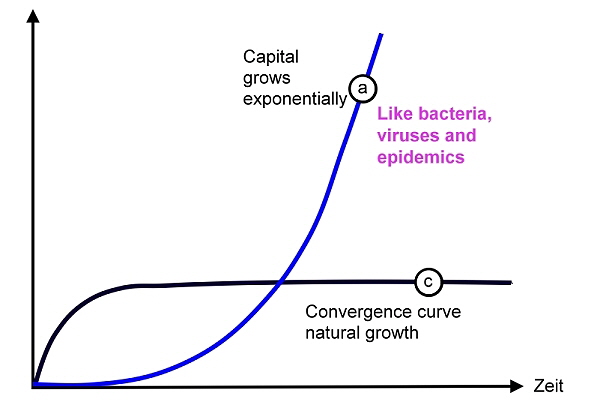


Home Energy Water Work Economy Solution Politics Team Product Recycling Cars Ships Aircrafts Promotion
World Pollution Air Weather Violence Women Weapons Psychology Plants Animals Food Peace Faith Imprint
Politics
I prefer a constructive cooperation in the team







Pragmatism
1. philosophically: A philosophical school founded by Peirce and James, which proposes a secure construction of knowledge through the combination of mathematical-logical and scientific methodology
2. generally: An attitude that focuses only on factual circumstances and practical action
Right-wing extremists could win a battle of black against red and green. But could they also run a national economy?
Right-wing parties are on the rise in many countries. I see this primarily as a sign, a sign of the failure of the current way of life. Prices are rising across the board, economies are increasingly sluggish, unemployment rates are rising, national debt is slowly spiraling out of control, housing, in particular, is in the stranglehold of speculators, and in many southern European countries, locals are living on the streets because tourists are occupying their homes. Add to that droughts, fires, heavy rain, hail, flash floods, landslides, and earthquakes, which are now increasing exponentially and are a foretaste of what is to come.
In the USA, there is no truly socialist party. There, the Democrats are often described as socialist by their rivals, the Republicans, and under Donald Trump, they are currently mutating into a strange mixture of madness, racism, and right-wing extremism. Donald Trump maintains a truly insane leadership style that is more reminiscent of experiments than experience, and it contains elements of a patriarchal and autocratic leadership, more like a company than a government. The attempt is clearly being made to continue capital growth exponentially, at the expense of the citizens if necessary, but definitely at the expense of trading partners, which ultimately must be borne financially by the citizens of the United States, for whom prices will continue to rise. Unemployment is rising because economic output is declining, because mass layoffs and the repatriation of cheap migrant labor reduce purchasing power and increase the cost of production. Tariffs also ultimately lead to significant price increases, which will severely hamper the sale of goods and services in the long term.
We see something similar with Javier Milei in Argentina, who also initially achieved several small successes, albeit at the expense of the increasingly impoverished population, who then paid him back in the provincial elections. Right-wing populist Milei pursued a drastic austerity policy, dismissing thousands of civil servants, cutting subsidies, and freezing work on public construction sites. He thus ensured Argentina's first budget surplus in 14 years, and inflation fell. He is celebrated for this by supporters, including internationally. The consequences were a decline in economic output, job losses, and drastic cuts in pensions and support for people with disabilities. There are repeated protests against the government's strict austerity measures. A corruption scandal involving Milei's sister, Karina Milei, put the lid on the situation. Milei currently governs without a majority of his own in Congress.
So we see that neither chainsaws nor right-wing, completely absurd, and unmarketable experiments can counteract the effects of exponential capital growth. Once the end of a capital growth wave has been reached, an economic crisis inevitably sets in, right-wing dogmatism sets in, and economic wars herald this.
Can one country alone generate a solution to our problems?
It is true that most capitalists have always claimed that "capitalism" is the only right path and that greed is the only viable human character. Also characteristic of these people is the assertion that only a patriarchal, hierarchical, or even despotic leadership style is the right one.
This group of those who hold power through money has been able to reinstall themselves time and again throughout history. Even though this has continually improved the prosperity of the general public, it has repeatedly led to decline, initially leading to economic crises and later to wars.
Socialists have not been particularly convincing in the past, if only because so-called socialism has always been nothing more than a socialist dictatorship. While there was less production there, unfortunately to the detriment of the citizens, environmental pollution was and often remains much higher in these states.
It should be noted, however, that the capitalists do not allow socialists to rise to power, but rather fight socialism like an enemy because they all fear for their private property. The extreme socialists want to generalize everything, limit ownership to a minimum, and expropriate other assets, including companies.
The far greater problem, however, with most moderate socialist parties is the handout approach. Here, they try to give wage earners a bit more of the pie, insure them, create good health systems and education, support the unemployed, and so on.
Aside from the fact that these systems do not represent a solution to the fundamental problem, it is the systematic decline in wages, or more precisely, the exponential reallocation of capital from the market to capital owners, which over time makes the oh-so-wonderful social security systems unaffordable. Thus, social security systems are gradually being dismantled and/or scaled back. This is precisely what is happening all over the world right now.
John Maynard Keynes was one of the proponents of compensation through taxes, rather than attempting to change people's personalities. But since profits must continue to increase exponentially, wages and taxes would also have to do the same. For this to happen, however, the economy would also have to constantly grow reciprocally exponentially.
But this time everything is different
But as a result of precisely this attempt to grow economies exponentially, the earth is heating up, problems are becoming increasingly complex, and must be solved in completely new ways. The consequences of this policy, the consequences of mass production, mass transport of goods by ships powered by heavy fuel oil, monoculture plantations, factory farming, and inappropriate treatment of the environment are becoming increasingly clear. Above all, the current annual emission of approximately 38 billion tons of CO2 is taking a heavy toll on the planet. In the already hot regions of the Earth, which have traditionally been exploited and have also been held back from development, people can barely survive and are trying to improve their situation by migrating to the North. This fact, combined with the effects of inflation, rising prices in all sectors, falling wages, and dwindling social systems, is triggering fears and driving citizens of the Nordic countries into the arms of right-wing populists. At the same time, more and more attacks are being carried out; shootings, stabbings, and mass shootings are on the rise, as is global warming.
Due to the impending problems, the severity of which will surely cause even more suffering in the future, citizens will become even more violent in the future. Even today, socially well-off people in many countries live in gated and guarded areas to protect themselves from robbery and violence. On the other hand, more and more slums are emerging where violence prevails at all levels.
A solution is not in sight
No real solutions are visible at any level, and there will be no "green" revolution either. How could this even work under capitalism? At best, the result is green-tinted compromises, because we would have to continue increasing profits to infinity, producing more and more. More wind turbines, more photovoltaics, more electronics, more data centers, more batteries... It is also highly doubtful that right-wing and ultra-right parties would be capable of managing national economies. Especially since these parties obviously believe that they must not change the system, i.e., capitalism, but rather exacerbate it. Another major problem is the claim to solve the problem nationally. That can't work, and so-called miracle machines like fusion reactors would, if at all, only work in a hundred years at the earliest. By then, given the current state of affairs, we would already be at the height of excessive murder and manslaughter, possibly a nuclear war, and/or a sea level rise of 6-8 meters.
Conclusion: There's no time left for dogmatism. All political parties are unsuitable for governing the Earth. Individual countries alone cannot generate a solution to the problems at hand. Therefore, it can only work together, and it can only work if we are all willing, even those who are not satisfied with it, to live according to the laws of the universe, which dictate thrift, infinite recyclability, and efficiency—that is, to live as normal citizens and not as wasteful and out-of-touch special citizens—to solve the fundamental problem of interest, returns, or even dividends by limiting their exponential growth. Only diseases and epidemics grow exponentially; natural growth only grows exponentially at the beginning and then transitions to zero growth or, at best, to moderate growth appropriate to the circumstances. Even the hypothetical exponential expansion of the universe in the early phase after the Big Bang subsequently transitioned to moderate, continuous expansion.

Natural growth is called natural growth because almost everything on Earth grows according to this pattern: trees, bushes, grasses, stalagmites, stromatolites, corals, humans, and animals. Only bacteria, viruses, and diseases develop exponentially. This is why Aristotle once said: "Money originated for exchange, but interest assigns it the purpose of self-reproduction. Therefore, this form of acquisition is the most contrary of all to natural law."
Home Energy Water Work Economy Solution Politics Team Product Recycling Cars Ships Aircrafts Promotion
World Pollution Air Weather Violence Women Weapons Psychology Plants Animals Food Peace Faith Imprint